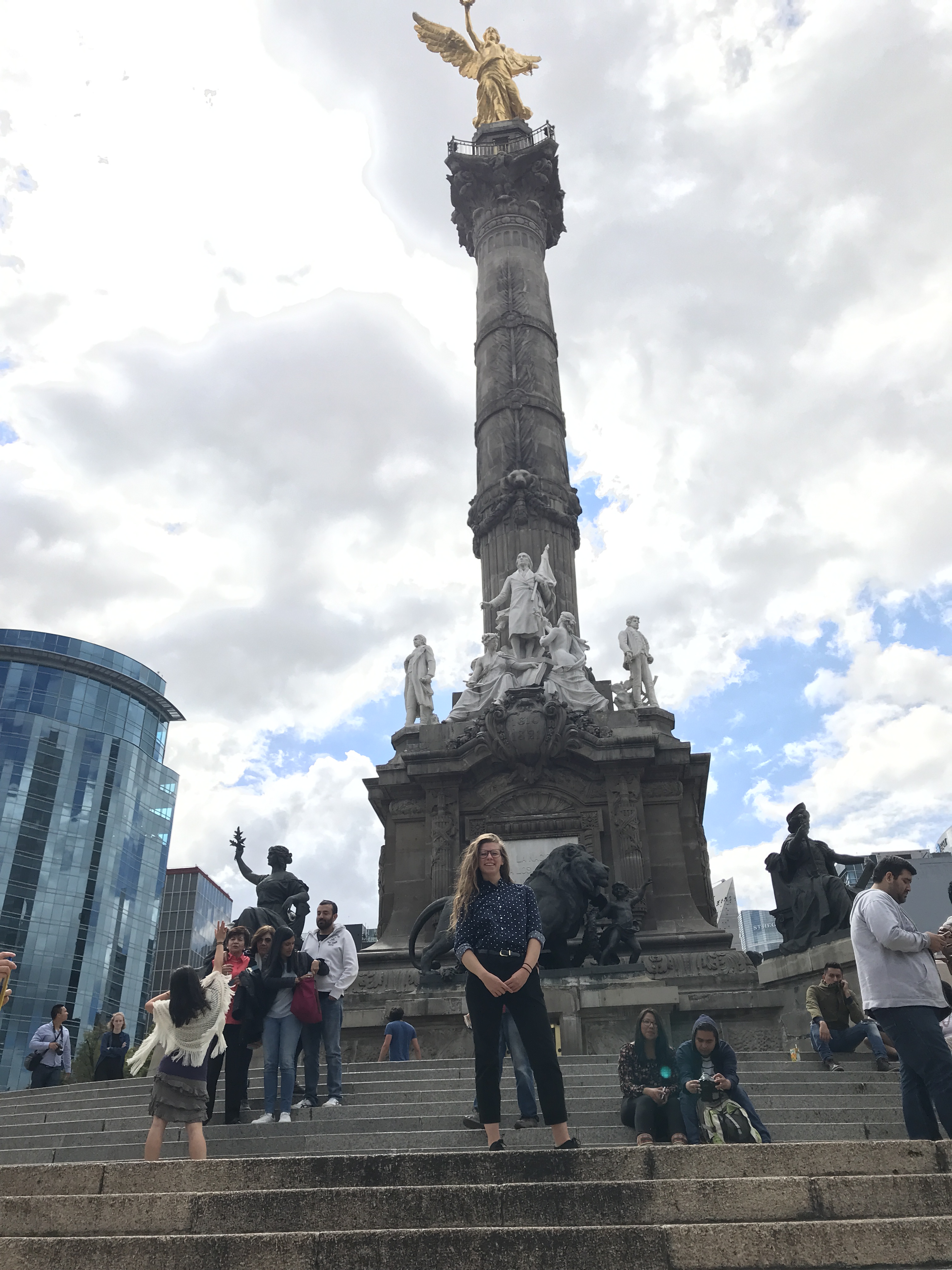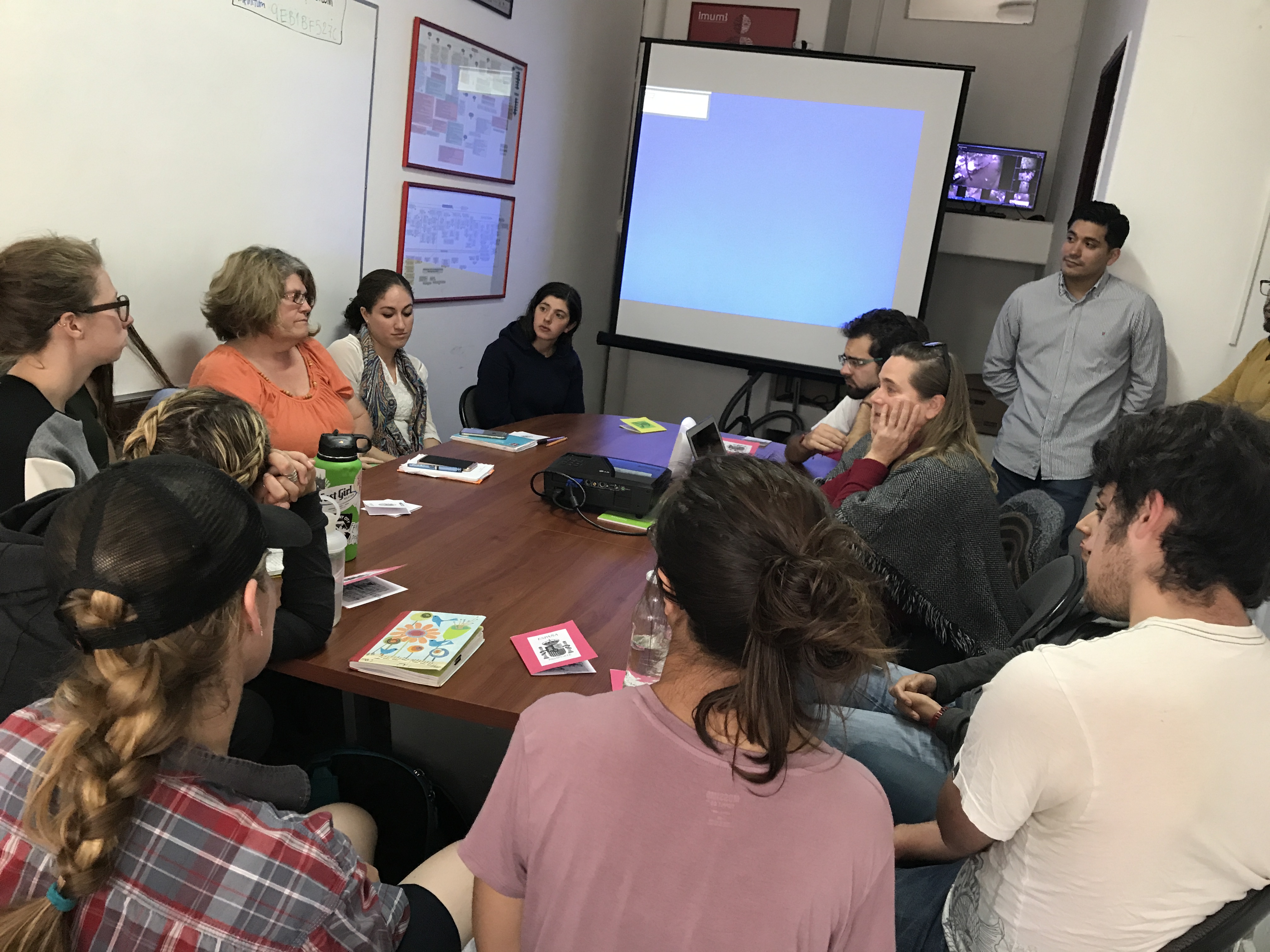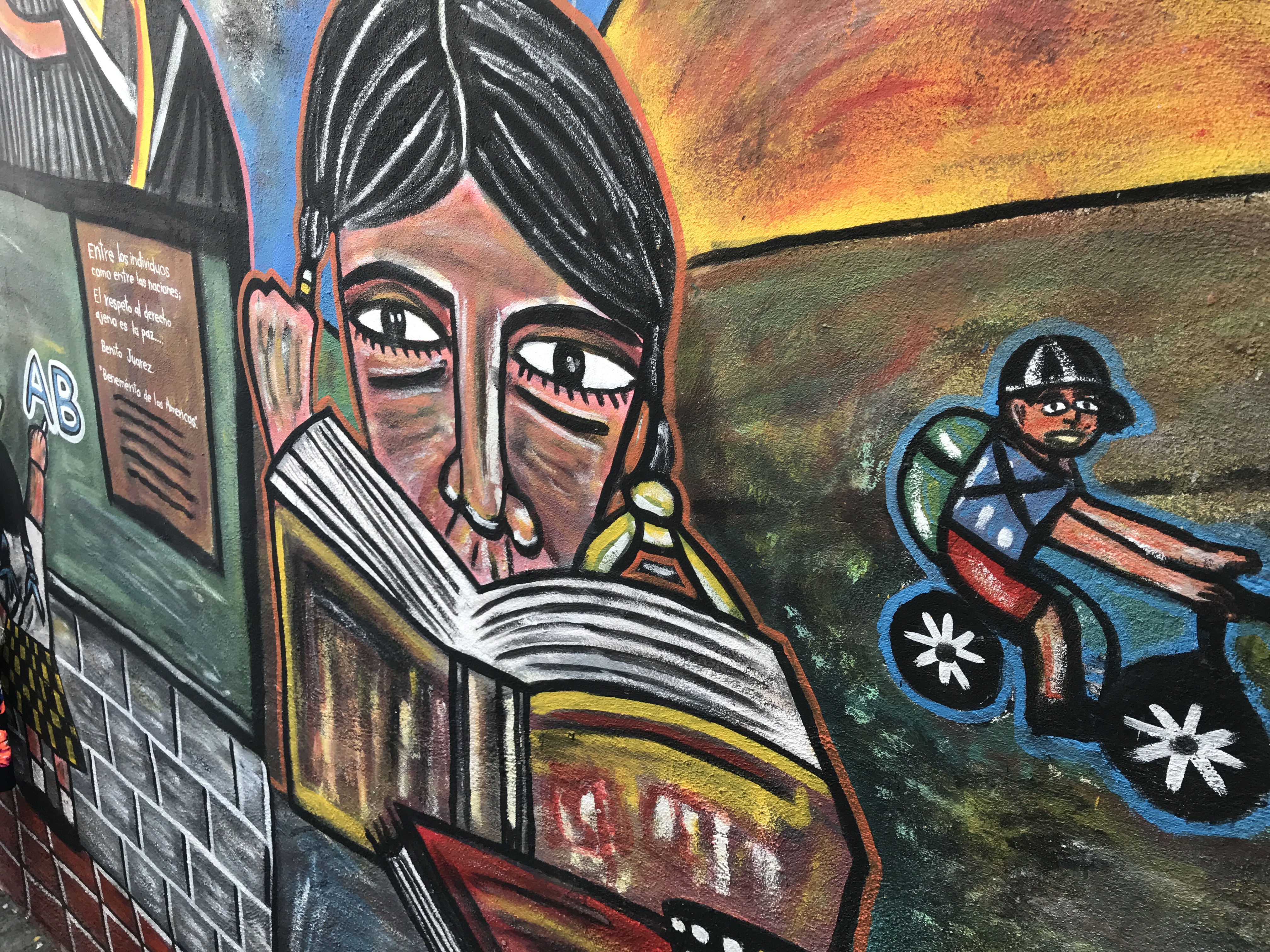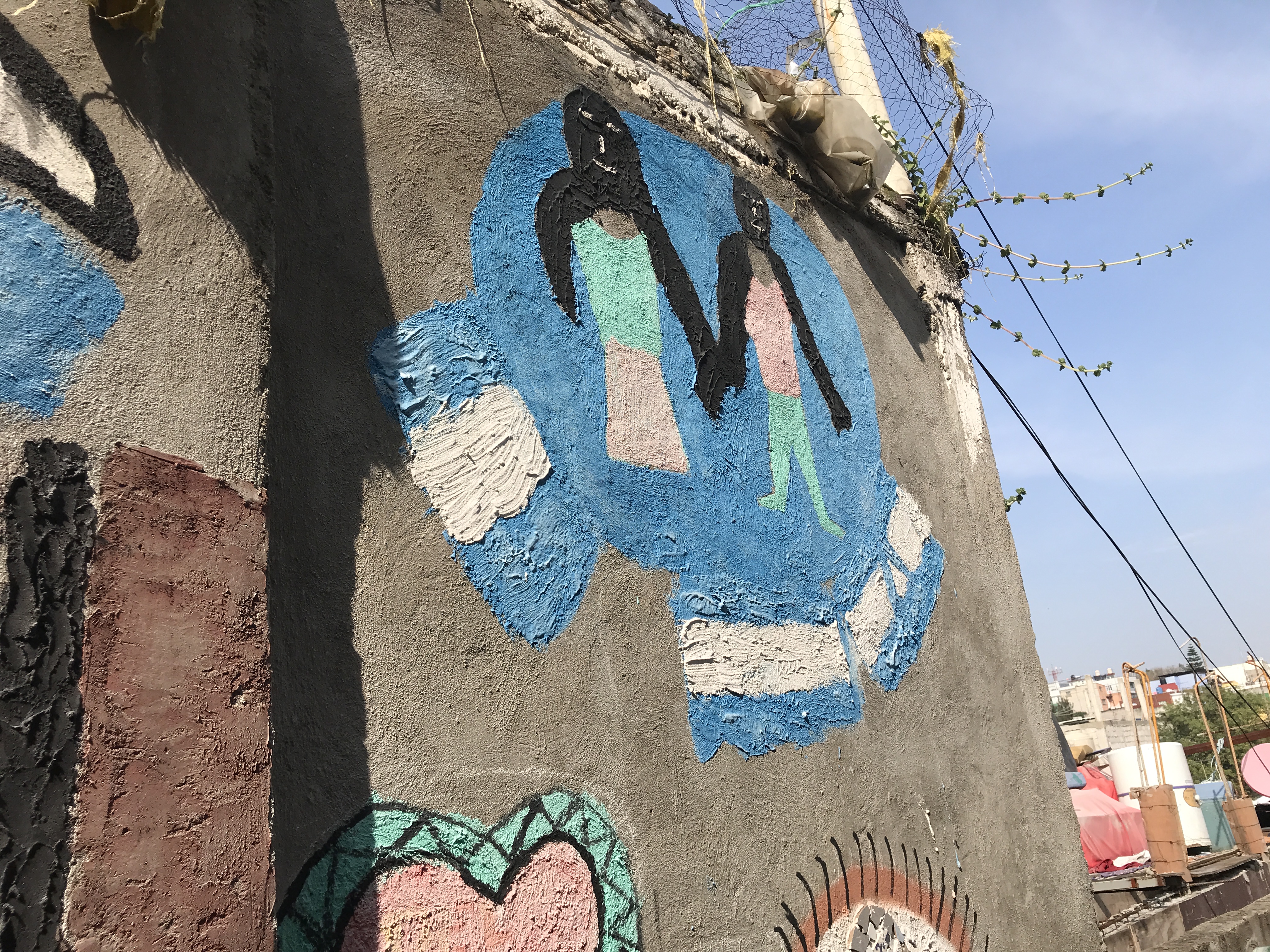
Oaxaca has opened an amazing amount of doors for me and I cannot be more grateful. What this program entails and the time I have spent here have made me reconsider my vocational and educational goals. I am confused as to where I stand and to who I now am, but in the best way possible.
I am a Sociology and Hispanic Studies double major. Before this trip, I was highly focused on the immigration system in the United States; I was incredibly curious about its history and the social ramifications surrounding it, and was fascinated by how these are manifested in Tacoma, since one of the largest detention centers in the country is housed on Tacoma’s port. Immigration, or migration in general, are complex topics that influence culture, experiences, and social situations in every place around the globe. This idea of migration as a global and international phenomenon was something I was conscious of based on the experiences I had working at Tacoma Community House with Immigration Services, taking HISP 423 Special Topics in Spanish Literature, going to volunteer workshops for organizations such as AID NW, and more. But it was not something I felt or had a deeper connection to.

Since being here in Oaxaca, my understanding of my understanding has developed and changed entirely. It is not something I am only aware of, but is now something I have a connection to through my experiences here. One of the most significant experiences was our visit with representatives of IMUMI or, Instituto para las Mujeres en la Migración (The Institute for Women in Migration) and Clínica de Acción Legal, where we listened to a presentation on categorias sospechosas or racial profiling and how it affects the migration of, primarily, indigenous persons from Mexico who are migrating within their country. Due to the profiling that occurs, in addition to a lack of understanding which also occurs when there aren’t translators that speak the needed indigenous language (e.g., Tzeltal), the passage from one state to another, from Chiapas to Puebla, for instance, can be incredibly dangerous. People can be detained at the will of the officials who determine the identities of those migrating, and consequently Mexican citizens can be deported based on assumptions about their identity: this occurred when three Tzetltal indigenous women were detained by Mexican border patrol agents based on the assumption that they were migrants from Central America entering the country illegally, even though they were from Mexico. This was an eye-opening presentation that I still think of constantly because it was a moment where the breadth of migration and its nature as a global phenomenon hit me with force.

We returned to Oaxaca, where I continued part of my studies through an Anthropology class focused on indigenous populations in Oaxaca. With the knowledge I gained through our experiences, and especially our time visiting with IMUMI, I was able to relate what we learned to what I was and am currently studying. For example, an important aspect of the migration of indigenous groups in Mexico is the establishment of transnational social networks of support between migrants. This is so important because without the establishment of these networks and groups, the risk exists that there will be a loss of connection with homelands and families, and also a potential erosion of cultural ties. The mistreatment of the Tzetltal women demonstrates an instance where indigenous migrants were at risk of being severed from their families and roots, forcibly, by those in control of the situation based on racial profiling. Without my combined experiences in class and with IMUMI, I wouldn’t be able to see these connections like I can now. The opportunities I have here constantly teach me about my specific interests, but also continuously teach me how to think critically and apply what I am learning to the life I am currently living. I remain in a space where I am unsure about the exact path I want to take in regards to my vocation and future education, but I know I would love to keep exploring immigration as a global phenomenon while exploring my vocation in the United States–and also in Mexico.
